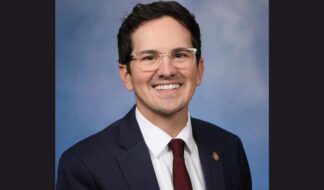American Gene Technologies, a Rockville, Maryland, based gene and cell therapy company, announced on Aug. 11 that it has received approval from the U.S. Food and Drug Administration to begin its first human clinical trial for a unique cell altering treatment that it believes will enable the immune system of people who are HIV positive to permanently eliminate HIV from their body.
"AGT developed a new treatment to repair immune system damage done by HIV and allow natural responses to control the virus," the company says in a statement announcing the approval for its clinical trial. "From its research, AGT believes a cure is attainable and is now taking the significant step of testing in humans."
The statement says AGT is conducting its phase one clinical trial at sites in the Baltimore-D.C. area. It says the Washington Health Institute in Northeast D.C., Georgetown University, and the University of Maryland's Institute of Human Virology in Baltimore will be the three sites for the trials.
According to the statement, the phase one trial will investigate the safety and efficacy of a product the company calls AGT 103-T, "a genetically modified cell product made from a person's own cells." It says the product and treatment should work to remove HIV infected cells from the body and "decrease or eliminate the need for lifelong antiretroviral treatment."
In an online virtual news conference held on Aug. 12, AGT Chief Executive Officer Jeff Galvin explained that the clinical trial involves a multi-step process of extracting blood from an HIV-positive person whose HIV is fully under control through anti-retroviral medication and immediately subjecting the blood to a process of Leukapheresis, which separates a type of white blood cells known as T-cells.
Galvin said the T-cell samples extracted through that process will be sent to a lab, where they will be genetically altered in a process developed by AGT. He said AGT believes the genetically altered T-cells will make them resistant to HIV infection and enable them to do what HIV has prevented human T-cells from doing during the course of the 40-year plus HIV epidemic – to neutralize the virus and prevent it from harming the human body.
Once the gene-altering process is completed and an initial waiting period is used to allow the altered cells to multiply in the lab, the cells will be "reinfused" into the body of the person participating in the trial and from whom the original collection of T-cells was obtained, Galvin said.
AGT has said in earlier statements that individuals participating in the clinical trial will initially continue to take their regularly prescribed anti-retroviral medication while testing of their blood continues to determine whether the newly infused T-cells are killing or neutralizing HIV to a degree that will no longer make the anti-HIV medication necessary.
C. David Pauza, AGT's chief science officer and the company's lead researcher in the development of the genetically altered, HIV resistant T-cells, stated at the news conference that under FDA protocol, the process must be shown to be safe and not have significant side effects on the first person to undergo the procedure before the procedure is performed on the second person to participate in the clinical trial.
Pauza said he, Galvin and the AGT team consider the FDA's approval of the clinical trial an important development brought about by years of research and laboratory testing.
"This is momentous news that we have FDA approval to launch Phase 1 and conduct our first human trials," he said in a statement. "We are beyond excited to reach this milestone. This brings us closer to our goal of transforming lives with genetic medicines," he said.
"Based on our successful commercial-scale product manufacturing runs and features of the product observed in our labs, this therapy has a high potential to be effective," Pauza said.
Galvin told the news conference that the current cost for the complete process of extracting cells from an HIV infected person, genetically altering the cells, and reinfusing the HIV resistant T-cells back into the person's body is about $200,000. But he said he's optimistic that the cost of the procedure will go down dramatically as it is used more frequently in coming years. Among other things, he said that the extraction of the T-cells and the genetic alternation process can be done through machines in an automated process that can lower costs.
FDA spokesperson Monique Richards told the Washington Blade the FDA is prohibited by law and regulation from commenting on or acknowledging the existence of an "investigational new drug" application, known as an IND, or whether a clinical trial is taking place.
"The FDA supports the safe clinical development of these products and we are committed to continuing to work collaboratively with industry and the medical and scientific communities to provide the information and guidance needed to help foster the advancement of these promising therapies," Richards said in an email on Friday.
This article originally appeared in the Washington Blade and is made available in partnership with the National LGBT Media Association.










